Love can be ambiguous. Love can be strange. The different types of relationships that exist today are a testament to how varied our tastes can be and these have made the dating scene of the modern world an interesting one. The phases of dating seem to shift with each passing year and yesterday’s rules are today’s red flags.
People start to wonder where they stand in the scheme of their relationship’s journey. Knowing where you and your partner stand can be reassuring and give you more confidence. Learning about the seven phases of dating and what they entail can also help you understand you may have skirted a few phases and are possibly rushing into a relationship – which is never a good sign.
If you’ve ever asked yourself, “What are the phases of dating relationships?”, then this article is designed to give you clarity and help you get an idea of the typical trajectory a relationship takes before becoming official.
The 7 Phases Of Dating You Go Through Before You’re Officially A Couple
Table of Contents
You can’t predict everything in life. The relationship timeline too varies greatly from person to person. With that in mind, the phases of dating listed below outline the most common ways a relationship develops before it becomes official. Of course, what constitutes official depends on the couple.
For some, official means being in an exclusive relationship defined by a serious commitment where they agree to not see other people. Others wait for the honeymoon phase to get over and for things to settle down before calling it official. The journey to becoming an “Official Couple” is not straightforward.
A lot of times, people skip several stages of a relationship and its development while others stay friends or keep things casual and undefined for long periods. If you feel like your relationship doesn’t match exactly with what you read here or elsewhere on the internet, don’t worry. There aren’t any rigid rules to the game of love. Even so, an insight into the different phases of dating will make sure you aren’t constantly losing sleep over “what are we?” or “where is this going?”:
1. The crush phase
This is objectively one of the first stages of a relationship but you may be wondering why a simple crush is counted as a phase in the dating world. Well, any relationship needs a spark that precedes everything else. Many consider a crush to be that spark and one of the first phases of dating relationships.
In this first stage, you fall in love with the way the person behaves, their qualities, and attributes. For some, this ‘superficial’ connection can be instantaneous. For others, it may grow over several weeks or months of spending time together. Some obvious signs that you are crushing on someone are
- Infatuation: It is common to be confused and wonder, “Am I in love or infatuated?” Infatuation refers to the strong desire you have for a person you are attracted to. Even though you may not know much about the person, you are still fascinated and in love with their personality, looks, or other observable characteristics
- Fantasies about your future together: This often brings with it opposing emotions such as excitement and nervousness. The former stems from the possibility of a future together, and the latter, from the worry if your feelings will be reciprocated. During this time, you may find yourself thinking about the honeymoon phase of romance –going on vacations together, what life would look like with them as your partner, and other such visions
- Difficulty focusing on other tasks: When a crush is really strong, people are often distracted and unable to concentrate. This is obviously because you can’t stop thinking about them for hours on end. People typically move out of this phase when someone decides to take things forward
Related Reading: The 4 Bases In Relationships That We Unanimously Agree On
2. The talking phase
The talking phase of a relationship is the time before romantic feelings become more evident. You enjoy conversations and begin to hang out with them more and form impressions of each other.
In this second stage, you spend time together, talking to each other in a group or one-on-one setting, which gradually starts to fuel the chemistry between you two. How long should the talking stage last? As long as it needs to! Talking is essential as you are getting to know each other and gauging compatibility with each exchange.
One can consider this to be a sort of undefined stage being that it’s tough to guess where the two of you stand with each other and whether it’s time to take the next step toward a romantic relationship. If you do feel strongly that the other person is also into you and you wish to move to the next stage, here are some things you can do:
- Use “we” language to show that you see a future together: For example, a statement like “I really enjoy spending time with you. We should do this more often”
- Pay attention to body language and its role in your dynamic: The other person may give off subtle signs that they are open and ready to pursue a romantic relationship with you. Look for positive body language and listen for verbal cues that indicate their interest. Some examples of this include prolonged eye contact, flirting, and even light physical contact such as brushing of arms, lingering hugs, etc.
- Decide to risk awkwardness: There is a chance that you have misunderstood the signs from their side. Be ready to accept that the other person may not be romantically interested in you. Think about the consequences of how deciding to directly ask them out would affect your connection. If you still think they’re worth it, then go ahead and ask them out boldly
3. The pre-dating phase
As you go through the first three phases of dating, underlying currents clearly get stronger. You can feel the air getting thick with attraction or even sexual tension and you might sense that your relationship is no longer simply one of “friendship”. Instead, you are now in a “mutual attraction stage” and are starting to connect on a more romantic level.
You start to realize it’s important to be a good listener and listen intently when they speak. You might even notice them doing the same thing. There is a clear reversal of dynamics compared to the crush phase. It is no longer only you who finds reasons to hang around them, as now, your romantic interest also takes initiative and enjoys being in your presence. Some common real-world examples that you might notice in this stage:
- “What’re you up to” esque messages being sent and received frequently
- Your personal space starts to include them and you notice that you don’t mind it when you get physically close to each other
Once you have gotten over the initial awkward stage of seeing each other romantically, you can start working on deepening your relationship, which sets the stage for the actual dating phase. Try not to get too ahead of yourself and start wondering, “How many dates before intimacy can happen?” For now, keep it simple and enjoy activities that aren’t particularly romantic in nature. Some shared activity ideas you can try before going on a classic first date are:
- Volunteer together: Many people find that helping others can be a very rewarding way to bond. Look for local volunteer opportunities or support a cause that you are both passionate about
- Attending events or festivals: Going to a concert, a fair, a sports event, or any kind of community event can be a fun way to spend time together and explore your shared interests
- Taking a class together: Signing up for a class together can be a great way to learn, get to know each other, and connect with your partner on a deeper level. These classes could involve cooking, dancing, or any other hobby that’s light-hearted enough
- Going for a walk or hike: Being outdoors and exploring nature can be a great way to enjoy each other’s company. Conversations during a walk or a hike are surprisingly meaningful and can reveal new aspects of your potential partner
- Going out for a casual meal: This could be a great way to get to know each other over some good food and conversation
Engaging in these activities allows you to learn about your shared values and build rapport. These can also be useful to assess if he or she is the right person and a potential partner for a long-term relationship. This is also a good time to set some personal growth goals and improve any areas of yourself that need to change. Think of it as a sort of preparation for the honeymoon phase that the new relationship is about to bring.
Related Reading: 10 Critical Emotional Needs In A Relationship
4. The dating phase
After completing three phases of dating in your relationship timeline, this fourth phase is one of the biggest milestones you can reach. You have now established without a doubt that you are more than friends. You have also started evaluating their compatibility with you for a long-term relationship.
In this fourth stage, you have either implicitly or explicitly acknowledged that romantic feelings exist and the two of you begin a journey to discover where it leads. It’s at this time that people normally have the long-awaited “romantic first date”. Activities that you engage in from now on take a more romantic tone than before.
During this phase, couples spend significant amounts of time together, getting to each other’s likes and dislikes, values, and personalities. They enjoy the process of planning romantic dates and it feels like every moment together just makes the connection stronger. The first few dates can be amazing and you are thrilled that you have potentially found someone perfect. Enjoy and cherish these memories as much as possible. During this stage, one needs to keep in mind that not everyone moves at the same speed.
For instance, one partner may prefer to spend a long time in the dating phase while the other may be wondering why the relationship isn’t moving forward. As you can imagine, communication would be of utmost importance here. This phase is also a time when boundaries are established and expectations are made known. These can include aspects such as:
- Time spent together: Couples may set boundaries around how much time they spend together, how often partners see each other, and when they need some alone time. Sometimes hanging around 24/7 even with your best friend can get emotionally draining
- Physical intimacy: Physical intimacy can be an important aspect of a relationship but the question “how many dates before intimacy can happen?” can leave you unsure about whether or not to act on your desires. The answer depends on what feels right to you and the person you’re dating
- Relationship goals: It’s a great sign if you or your partner want to discuss relationship goals and what you hope to achieve together. It’s important that both partners have a clear understanding of each other’s goals for the relationship and the future
- Independence: Getting burnt out with shared activities is a serious risk. It doesn’t mean something is wrong with you. Every person needs to have time for their hobbies, friends, and activities without feeling guilty
Creating good memories together helps you see that the other person is worth sticking with through thick or thin, and this comes in handy during challenging times.
Related Reading: 13 Sure-Shot Signs A Casual Relationship Is Getting Serious
5. The vulnerability phase
During the fifth phase of dating, couples often open up to each other to build trust, intimacy, and understanding. Some look forward to this stage and feel eager to open up to their partner. However, not everyone is comfortable with being vulnerable with a man or woman. Understanding that this is a vital part of strengthening a relationship and giving each other the space to approach it at a pace you’re each comfortable with is essential.
Being vulnerable involves honesty and transparency about one’s thoughts, feelings, and intentions. Vulnerability also means being upfront about what one is looking for in a relationship and what one’s goals are. The reason why this stage doesn’t happen earlier is that vulnerability requires trust. You are more likely to be vulnerable with someone you trust and when the other person has demonstrated that they are not judgmental and won’t use the things you share with them in confidence against you.
Up until this stage, people put their best selves forward, in an attempt to woo and impress their romantic interest with their charismatic side. Seeing your partner open up and reveal their true self bolsters your confidence so much that you begin to connect deeply with them and believe that he or she is the one for you. When the core aspects that define who you are, are respected and cherished, it tremendously strengthens your relationship and can be a powerful contributor to intimacy.

6. The challenge phase
As your relationship progresses through the different stages of love, you enter the challenge phase. Small relationship problems start to emerge now and how each partner handles the situation will determine how conflicts will be resolved in the future as well. The challenge phase usually starts once the honeymoon phase is over and it can truly test the bond and strength of a relationship.
Disagreements, conflicts, and arguments are a normal part of any relationship, and flexibly dealing with them proves to each partner that the other isn’t going to bail out at the first sign of tough times.
What are some common challenges that couples are likely to face at this stage?
Challenges in a dating relationship can occur in a variety of situations and with different levels of complexity. Let’s look at some of the most common relationship challenges almost everyone has to face:
- Communication breakdown: Miscommunication and lack of effective communication can be major sources of conflict in any relationship. Couples may struggle to express their thoughts and feelings effectively, leading to misunderstandings. One of the biggest reasons this happens is that people hide their true feelings for the sake of upholding the peace and when they are unable to keep suppressing their feelings, it leads to an unpleasant lashing out or arguments. As you can imagine, open communication is key in this stage
- Trust issues: Trust is crucial to building a strong foundation of any relationship. When broken, it can be very difficult to repair. Trust issues arise from several factors but most commonly involve infidelity or perceived infidelity, dishonesty, or from one partner consistently breaking promises
- Financial stress: Money can be a major source of stress for couples. Arguments about finances due to differences in spending habits, disagreements about how to handle money, or financial difficulties all create an uncomfortable and difficult dynamic to navigate
- Different expectations and goals: As people grow and change, their expectations and goals for the relationship may also change. This causes people to feel like their partner is betraying them or going back on their word, which leads to misunderstandings, disagreements, and disappointment
- Lack of quality time together: When couples are busy with work, family, and other obligations, it can be difficult to find time to be together. Studies have repeatedly found that partners who spend more time communicating with each other experience greater satisfaction and intimacy. A lack of quality time and limited communication can lead to feelings of disconnection and dissatisfaction in the relationship
- Inflexibility and lack of compromise: Sometimes people struggle to compromise on important issues and may have difficulty being flexible. Being able to adapt to changes in a relationship is an important skill to develop. A partner who is often rigid and wants things to always go their way can lead to feelings of frustration and unfulfillment in the relationship
- Power struggles: This is when one partner starts to exert more dominance than the other prefers. It can be an uncomfortable moment where the one being dominated feels disrespected. Addressing these feelings immediately can prevent deep resentment from taking hold
Related Reading: Dating Vs Relationship – 8 Subtle Differences You Never Knew About
7. The commitment phase
If you managed to make it through the previous stage, congratulations, you are at the final stage of your dating journey. You have spent enough time with each other and have a deep understanding of each other’s personality, habits, views on life, politics, and other aspects that are important to you.
Deciding that you are officially a couple is a major step in your relationship journey. Couples often make some sort of public announcement or share the news of being in a committed relationship with their friends and family. Sharing this information conveys that you view the other person as an integral part of your life.
You may also have discussed and found clarity on long-term plans such as living together or a timeline for marriage or any other form of commitment.
Some key features of this final stage include:
- Accepting your partner the way they are: You have come to love them as a whole; with all their perfections and imperfections
- You approach life together: When you are in a committed relationship, you make joint decisions and plans about the future. Life experiences from here on out are going to be shared and experienced with a mutual commitment
- Commitment to resolving issues: You and your partner have recognized areas of conflict and are committed to putting in the work to resolve challenges and growing together as a couple. You also go out of your comfort zone and put in the effort to create emotional intimacy in your romantic relationship
- A deeper level of communication: You listen to each other not just to hear but also to understand their perspectives and what the other is trying to convey on a deeper level. You have developed a sort of advanced empathy toward each other
These are just some of the signs you’re in a committed relationship.
Key Pointers
- There are several phases of dating people go through before they become an official couple
- An official couple refers to an exclusive relationship that has gone through various stages of love during the dating phase
- Trust is key in allowing one to be vulnerable with the other. Vulnerability, in turn, leads to stronger emotions and connection in the intimacy stage
- It’s a good sign when your partner prefers to talk things through instead of keeping quiet. This shows they value open communication even if it can be uncomfortable at times
- The challenging phase makes us go out of our comfort zone and deliberately work on resolving conflicts and disagreements productively and positively
- Once a couple makes it through the challenge phase of dating, they are considered to be in a committed relationship
We hope this article has given you some clarity to navigate the early stages of a romantic relationship. Naturally, it’s important to keep in mind that every couple is unique and their timeline in progressing through the phases may vary. Some couples may move quickly through the early stages and find themselves in a committed relationship after only a few months, while others may take years to build a strong foundation of trust and intimacy. Regardless of how fast or slow things move, always take moments to pause, breathe and reflect on the wonder that is love.
Your contribution does not constitute a charitable donation. It will allow Bonobology to continue bringing you new and up-to-date information in our pursuit of helping anyone in the world to learn how to do anything.

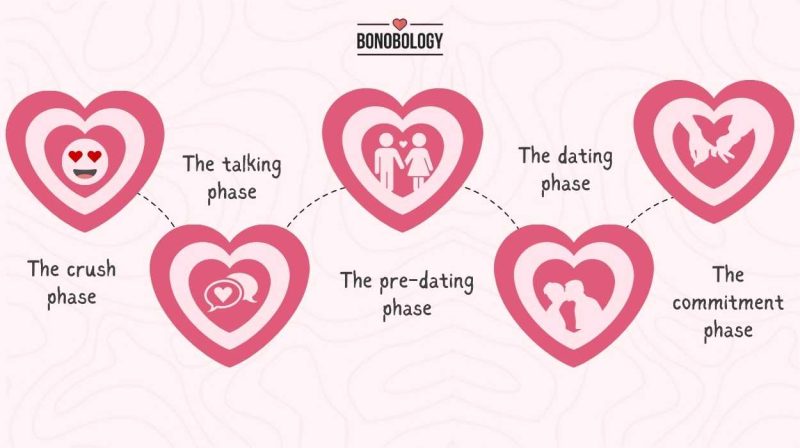

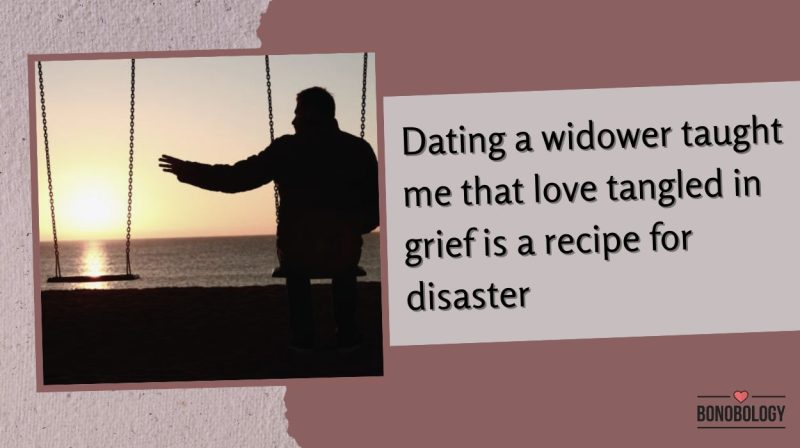
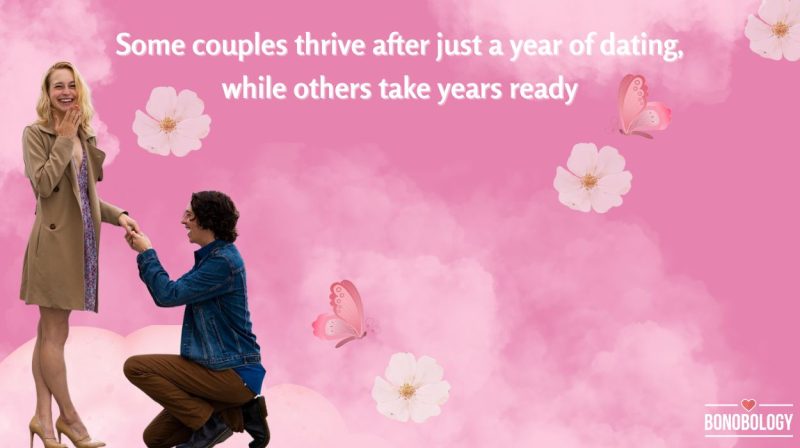
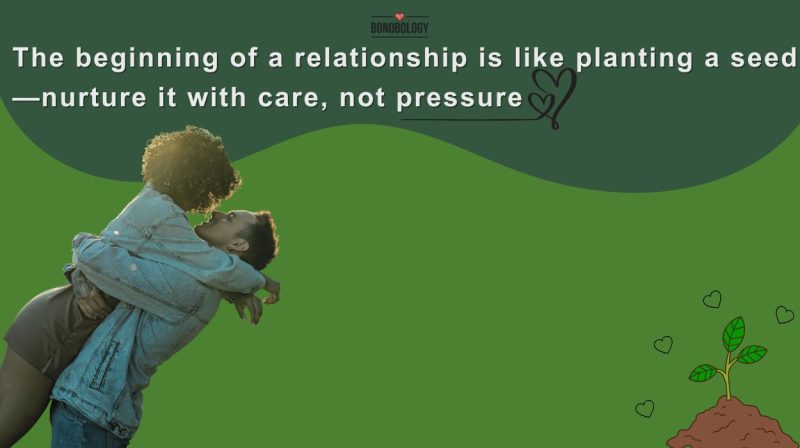
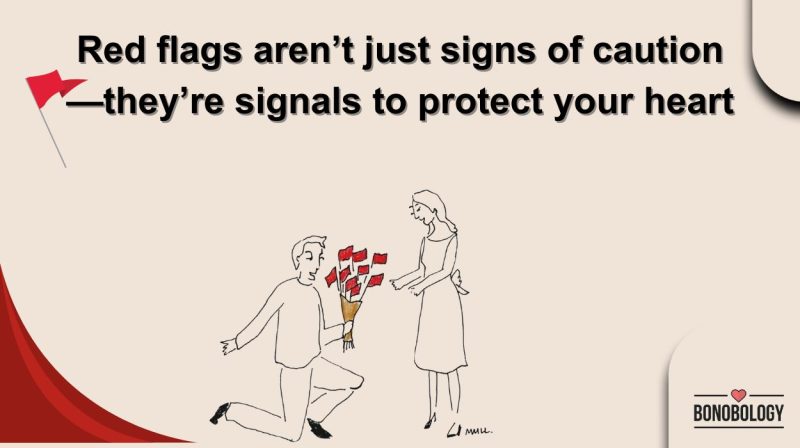

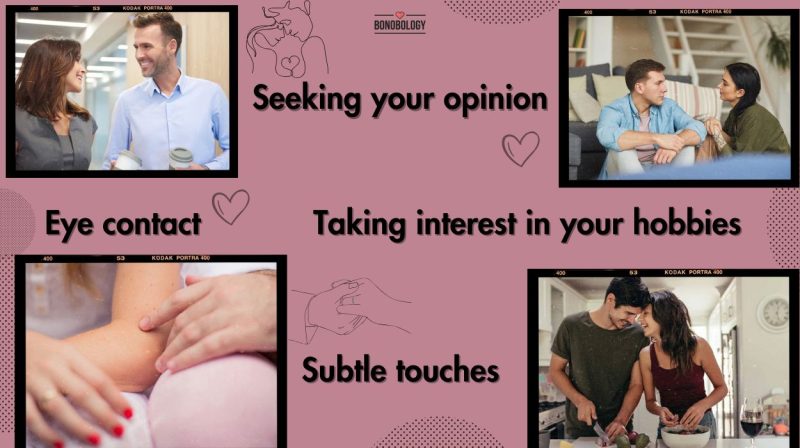
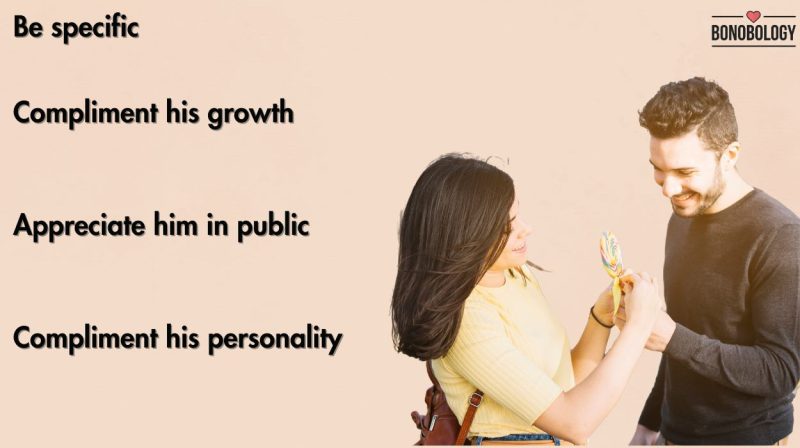

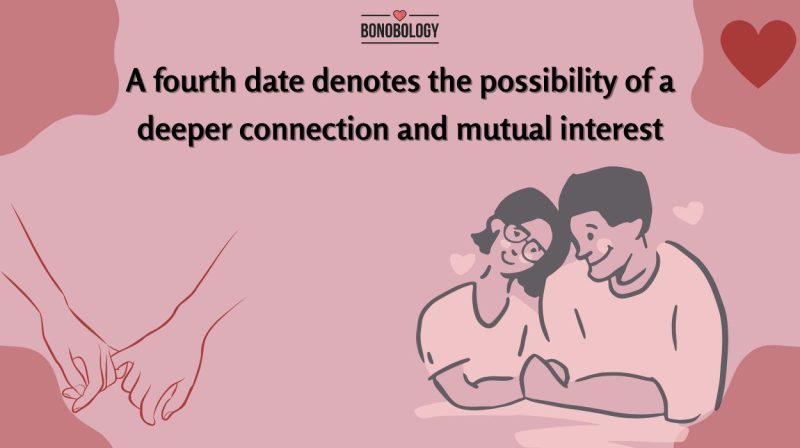
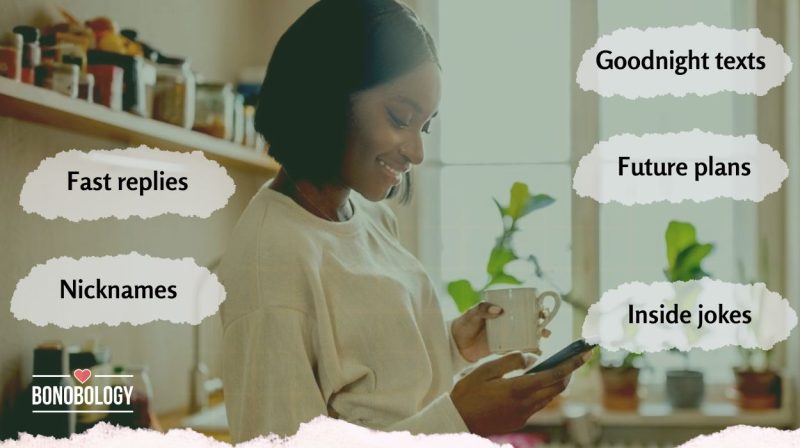
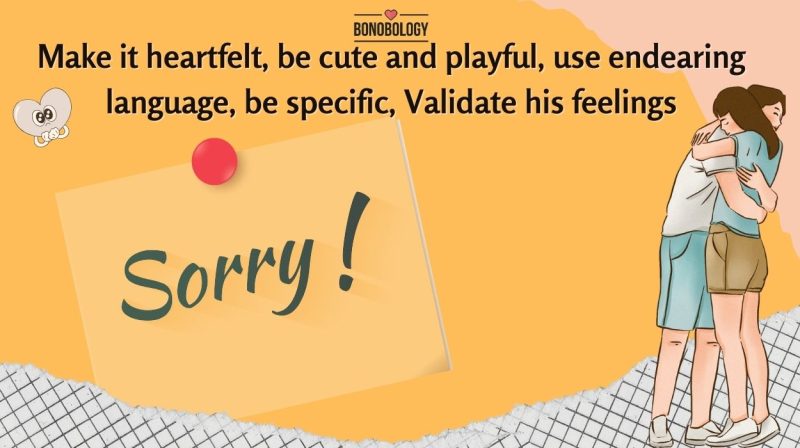
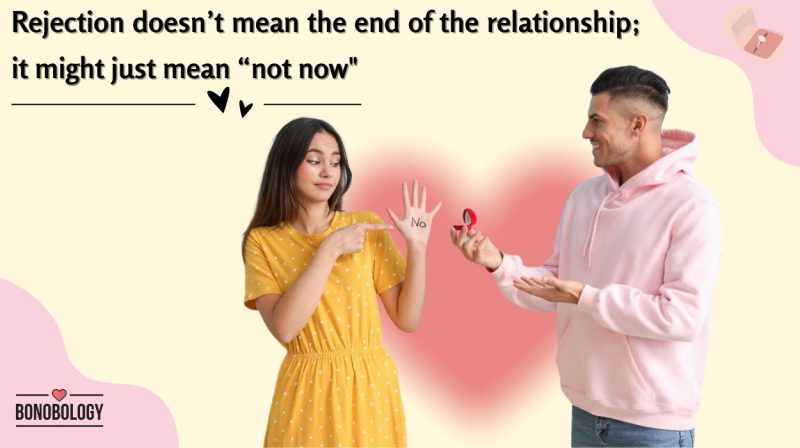
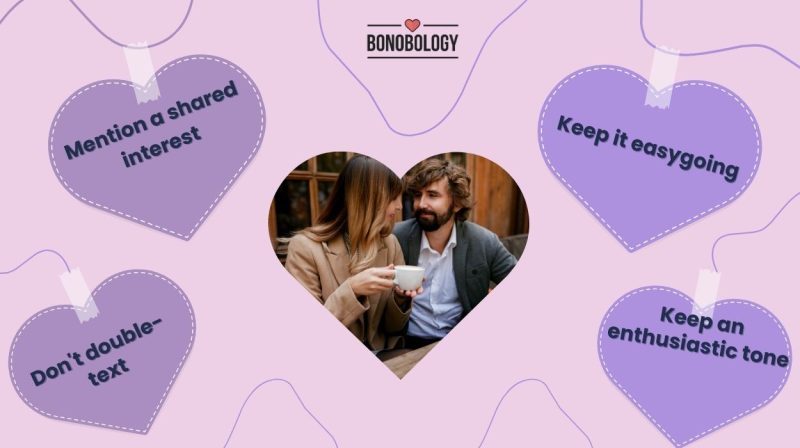


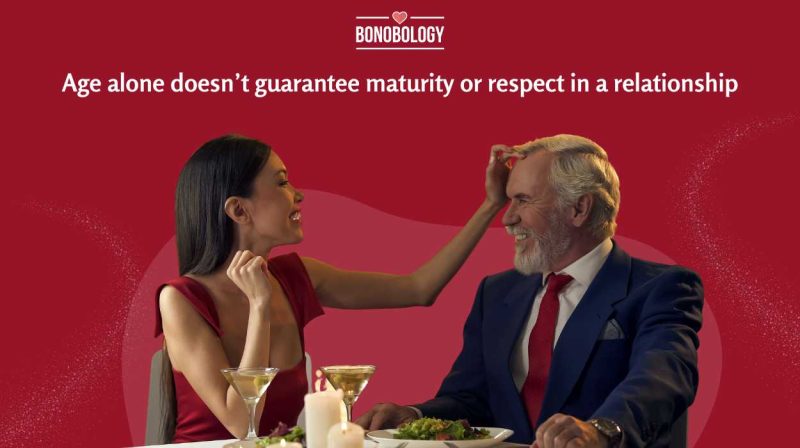

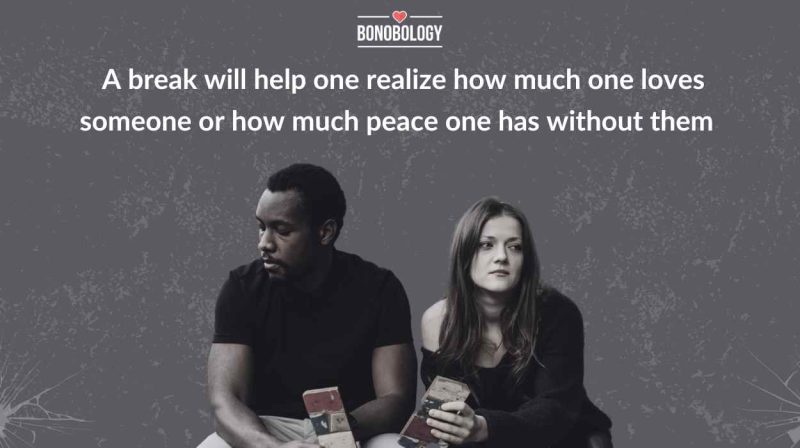


Featured
Why I Will Never Date A Widower Again—A Woman’s Story
How Long Should You Date Before Getting Engaged
Dating Guide: 9 Things To Never Do In The First Month Of Dating
11 Red Flags When Dating A Separated Man | Don’t Ignore These
152 Most Stupid Pickup Lines of All Time | AVOID THESE At All Costs
21 Clear Signs Of Unspoken Attraction Between Two People
How To Compliment A Guy: Tips And Examples
How To Comfort Your Girlfriend: 15 Simple Tips (With Examples)
Your Guide To Getting The Fourth Date Right
15 Delightful Signs The Talking Stage Is Going Well
How To Say Sorry To Your Boyfriend Through Text
My Girlfriend Rejected My Proposal: What Should I Do?
When And How To Ask For A Second Date
How To Get Over Infatuation: 17 Psychological Tricks
How To Talk Intimately With Your Boyfriend Over Text—15 Easy Ways
13 Red Flags When Dating An Older Man | Don’t Ignore These
100 Best Hinge Prompts With Answers For Instant Connections
What Does Taking A Break Mean To A Guy And How To Deal With It
Bumble Compliments: How To Use And What To Write
7 Early Signs Of A Highly Compatible Relationship